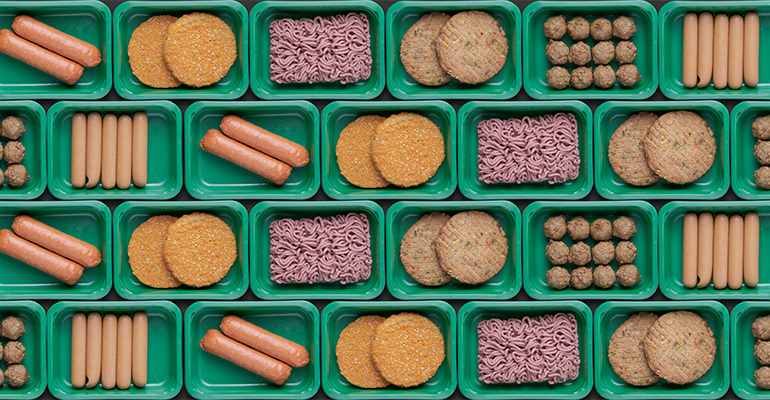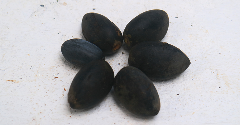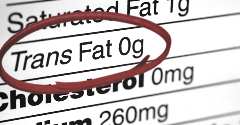French ban on ‘meaty’ descriptions for plant-based products will harm local industry
14 Jul 2022The new French legislation banning the use of ‘meaty’ terms such as “sausage,” “steak,” and “nuggets” is self-destructive to its own food manufacturing industry, commenters have lamented.
The official decree – published earlier this month – comes into force on 1 October 2022.
Translated, a summary of the decree states: “It will not be possible to use the terminology specific to the sectors traditionally associated with meat and fish to designate products which do not belong to the animal kingdom and which, in essence, are not comparable.”

It makes France the first European country to ban the use of words like sausage or steak to describe a plant-based products.
Although Europe bans use of dairy words including “milk” and “cheese” to describe plant-based alternatives, it rejected the proposal to outlaw use of meaty terms for plant-based products in 2020.
‘Self-destructive’ and ‘delusional’ for French business
France’s new law has polarized the food sector. Meat lobbyists who have long pushed for the legislation are in favour, but pro-vegan campaigners say the move is detrimental in terms of environmental impact.
From a strictly business perspective, however, experts say that French companies will suffer.
Matthieu Vincent, co-founder of European foodtech insight and strategy consultancy DigitalFoodLab, stressed in a LinkedIn post that the rule will only apply to French companies selling in France. The rule does not, so far, apply to imported products.
“Hence if you are a Swiss (Planted), Spanish (Heura Foods) or American (but producing in the Netherlands, such as Beyond Meat), you will still be able to use the wording of your choice,” said Vincent.
“Let's say that is a beautiful example of self-destruction applied to your own innovation ecosystem (and to the benefit of others').”
The move has been similarly slammed among the plant-based food sector.
Nicolas Schweitzer, CEO of the French plant-based meat alternative company La Vie, took to LinkedIn to write (translated): “You won’t see anything more delusional today! After pushing for the reindustrialization of France, the government has just passed a decree pushing us to relocate.”
He added: “We produce 100% in France and we will therefore be among the only [products] penalized on the shelves.”
Promoting detrimental meat-eating
While it is the first country in Europe to implement a ban on meaty descriptions for plant-based products, the legislation is not the first globally. It follows just a few weeks after South Africa brought in similar blockades.
Plant-based and cultured meat alternatives lobbyist ProVeg International at the time called South Africa’s law a “major step backwards” and said that it “disrespects the consumer and discourages climate-friendly foods”.
Speaking this month on the incoming French policy, Jasmijn de Boo, vice president, ProVeg International, was quoted in a host of publications as saying the French decree promotes animal-based diets.
“When those responsible for one fifth of all GHGs [greenhouse gases] globally are allowed by governments to increase their share of emissions, pollution, land, water and animal use by actively making it harder for consumers to make informed and lower-carbon choices, we need to ask our politicians some tough questions,” she said.
Meat industry thumbs-up
Nevertheless, French meat trade association Interbev argues that the new rule will be beneficial to the animal agriculture sector.
In a statement sent to Ingredients Network, Interbev’s president Jean-François Guihard said: “(The) decree’s publication is very important for Interbev because it contributes to the consumer information,” adding that the decision also protects the “savoir-faire” (know-how) of meat-based products.
A (translated) press statement from Interbev adds that the law is a “major step forward” for transparency of information provided to consumers for not-of-animal-origin products which “in essence, are not comparable”.
The National Federation of Farmers' Unions (FNSEA) also welcomed the framework, but its administrator, Yannick Fialip, highlighted its limits, including “vague” wording on imports.
Given that a large proportion of plant-based protein foods are imported to France, the transparency afforded by the new legislation will quickly reach its limits, he said.
Both Interbev and FNSEA went on to call for the legislation to be implemented at European level.
Related news

Chinese food brand wants to give customers ‘the full experience’
16 Dec 2022
Food brand Xiao Chi Jie is revamping Chinese cuisine for the modern American consumer. The Washington-based company sells regional Chinese specialties like soup dumplings, noodle kits, and barbeque skewers direct-to-consumer in the US.
Read more
Regulations spur healthy snacking in Europe
15 Dec 2022
Healthy snack demand is on an upward trajectory in Europe, fuelled by products attaching health halos to their products, according to latest figures by Euromonitor – but regulations may be the real driver.
Read more
Could the EU-Mercosur trade deal be revived?
14 Dec 2022
The re-election of Luiz Inácio da Silva, or Lula, as president of Brazil has prompted speculation that the free-trade agreement between the EU and South American Mercosur bloc could be revived – but the European farming sector has concerns.
Read more
Could menopause-supporting products be the next big opportunity?
13 Dec 2022
As supplement brands launch products to relieve the symptoms of menopausal women such as nutraceutical gummies, the unmet needs of this group is attracting government attention in the UK.
Read more
Plant-based fish and seafood launches around the world
12 Dec 2022
From pea protein-based prawns to microalgae-based tuna alternatives, plant-based alternatives to fish and seafood are on the rise around the world.
Read more
Editors’ choice: Our roundup of the most innovative sweets, snacks and bakery products
9 Dec 2022
The sweets, snacks, and bakery categories are an exciting area, full of fresh and innovative products which are constantly adding meaningful value to the sector.
Read more
Functional food in Japan centres on health and proving claims
8 Dec 2022
The latest Japanese functional food and drink trends put health and product efficacy firmly on the production agenda for new releases.
Read more
Swedish food agency: One in 10 coffee brands contain excess acrylamide
7 Dec 2022
New findings from the Swedish Food Agency have revealed three of 29 coffee products sampled contained acrylamide above limits, reinforcing the link between levels and degree of roasting.
Read more
‘Super nut’? Indonesia’s ‘best kept secret’ wins EU novel food approval
6 Dec 2022
A previously obscure, nutrient-rich Indonesian nut is set to hit European shelves after winning EU novel foods approval that could also help protect under-threat kenari forests on the archipelago.
Read more
Philippines to restrict trans fats in processed foods
5 Dec 2022
Use of artificial trans fats in pre-packed processed foods will be restricted in the Philippines as the country looks to eliminate its consumption from other sources too.
Read more